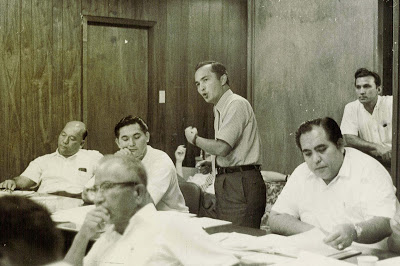New Ways of Having Old Conversations

I write regularly about "the decolonization conversation." I use this to refer to the wider public discussion and sometimes debate about Guam's future in terms of its political status. There are three main options that are to be considered when thinking about Guam's future status. Each of them provides a higher level of self-governance than remaining an unincorporated territory, although they can be slightly to very different. This conversation around Guam's political status has been around for more than a hundred years, although we often don't think about it that way. During the late Spanish period, Chamorus chafed under colonial rule, especially after the rest of the Spanish Empire had achieved independence or was actively rebelling or forming nationalist movements. Nowadays we don't know much about this, because we don't teach our own history very well. If we did take seriously the teaching of our history, we would have a general sense



